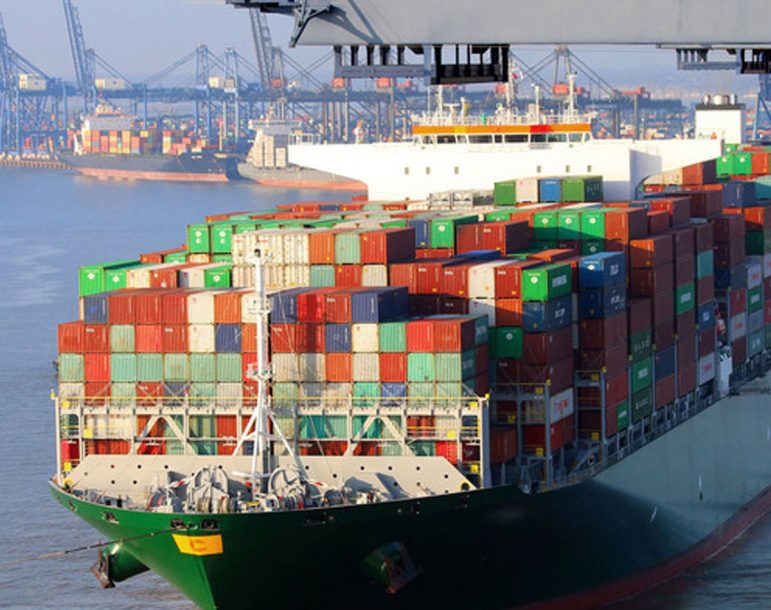As in other sectors, the effects and consequences of the health crisis caused by COVID-19 are, and will be, of great magnitude and also still uncertain in the field of maritime transport, the management of navigation, as well as in the operation and exploitation of U.S. ports.
Maritime services are considered “essential services” during this pandemic. Pilotage, both on land and on-board ships, storage, towing, mooring … are key to the safe execution of maritime transport. In addition to enforceable safety standards, different maritime companies have developed guidelines and recommendations to minimize the risk of contagion in the exercise of their essential work. For example, ship owners and operators ask their employees to travel separately in the skipper’s and sailor’s boat, to keep due distance with the crew and, above all, to maintain strict hygiene and sanitary measures.
As long as the pandemic situation continues, it is key to keep maritime trade on the move, and, to do this, the human element is essential.
In terms of a COVID-19 case, given the wide-ranging, and at times reportedly mild symptoms associated with the disease, it could be difficult to identify it while in the service of a vessel. Because the virus is highly contagious, one case could quickly be followed by many others.
In case of a COVID-19 contagion aboard a ship, a sailor or his family could receive compensation for the following:
-Loss of income
-Medical expenses
-Loss of future remuneration
-Funeral expenses
-Loss of social benefits
-Pain and suffering
-Mental anguish
-Association loss
Legal Benefits Under the Jones Act for Injured Maritime Workers
Once liability has been established against an employer, a sick sailor is entitled to temporary benefits known as “maintenance” and “Cure” Maintenance is a stipend paid to workers who are removed from work by a doctor because of their sickness. Cure refers to compensation for medical expenses, hospitals, and prescription drugs. Once a seaman meets an initial burden of proving that his/her illness was contracted during service of the vessel, the employer’s obligation to provide a maintenance rate (maintenance) and medical care (cure) is triggered.
In addition to distinguishing Jones Act’s benefits from those normally provided under workers’ compensation, an injured seaman may be entitled to significant damages for lost wages, disability, fringe benefits, and pain and suffering. Workers must have a Jones Act attorney who understands the law and their legal rights so they can fight to obtain financial damages for their injuries.
Limitation of Liability Law for Boat Owners
If a seaman becomes ill on board a ship, he/she is entitled to full compensation for his illness and other damages. However, the sick worker will need to establish a prima facie case — that is, some injury or harm occurred and that working conditions, or an accident occurred that could have caused the injury — it is presumed that the injury (in this sort of situation, the exposure to COVID-19) arose out of his/her employment.
It must be noted, however, that if the owner of the vessel can present ‘substantial proof’ to the contrary, he/she would be protected by the Limitation of Liability Law.
What Defenses Are There to Claims for Maintenance, Cure, And Sick Wages?
-Intentional Misconduct – While a seafarer’s willful misconduct constitutes a defense to sickness maintenance, cure, and sick wages, a shipowner remains obligated to provide emergency medical treatment.
-Negligence / gross negligence – carelessness on the part of a sailor who contributes to the illness does not constitute a defense to maintenance, cure, or a claim for sick wages. Even if the carelessness of a sailor is the sole cause of injury or carelessness reached the level of “clumsiness”, the courts have consistently held that this conduct does not constitute a defense.
-Intentional disobedience of legal order – This has been considered to constitute a defense.
-Intentional misconduct – This has been deemed to constitute a defense. Examples of such conduct include injuries related to illegal drug use and self-inflicted injuries.
-Deliberate concealment of a pre-existing condition – This defense is often referred to as the “McCorpen rule”. To establish the “deliberate concealment” defense, an employer must demonstrate that:
-Plaintiff willfully misrepresented or withheld medical information about a prior injury or condition;
-The undisclosed facts were essential to the employer’s decision to hire the plaintiff, and
-A link between the information disclosed and the damages reported in the lawsuit.
-Failure to comply with doctor’s orders – negligent behavior or refusal to follow the doctor’s recommendations may, in certain circumstances, justify the owner’s suspension to maintenance and cure.
An employer’s obligation to provide maintenance and cure related to the treatment of the disease would include the costs of all medical care related to its treatment – including potential repatriation, sequestration, and quarantine – to continue until maximum medical improvement. The obligation also could renew in the event of a relapse, a reported complication of the condition.
In contrast, a longshore or harbor worker seeking medical and indemnity benefits is required to prove that his/her illness is work-related. Proof requires the longshoreman to offer evidence of a causal link between his/her employment and contraction of COVID-19. However, the LHWCA is a compensation system at its core, which means that the scale is almost always tipped in the claimant’s favor.
Hire Lawyers Who Understand the Jones Act
A Houston maritime injury lawyer from our firm can help an injured seaman determine what rights they may have and advise if a possible claim can be filed against an employer. If you became ill on a boat or dock in Texas or lost a loved one due to COVID-19, contact one of our maritime accident attorneys.
When it comes to protecting sick workers on Texas waterways and applying the provisions of the Jones Act, PMR Law is determined to hold responsible parties accountable for their negligence. At no cost to you, our firm will investigate and process your case according to the most advantageous legal position for your situation. We invite you to contact a Texas Jones Act attorney today to discuss your case and the legal options for financial recovery through the Jones Act.
We will welcome the opportunity to review your potential case under the Jones Act. Call PMR Law at 832-667-7700 today to schedule a free and confidential consultation with a personal injury lawyer who will tirelessly fight for your legal rights.
Get in touch with us immediately so we can evaluate your case for free. We are available 24 hours a day, 7 days a week. You can also fill out a form by clicking here.
PMR Law is considered one of the Best Law Firms of America, by Rue Ratings. Several of our attorneys have been given the honor of being named Super Lawyers by Thomson Reuters. The American Institute of Personal Injury Attorneys has named our attorneys 10 Best in Client Satisfaction. Speaking of personal injury, Attorney and Practice Magazine awarded our attorneys with Top 10 Personal Injury Attorney distinctions. The National Trial Lawyers, as well as the American Academy of Attorneys, have named two of our attorneys as Top 40 Under 40. Our attorneys have been recognized as Best Attorneys of America, by Rue Ratings. PMR Law is a proud member of the Multi-Million Dollar Advocate Forum.

